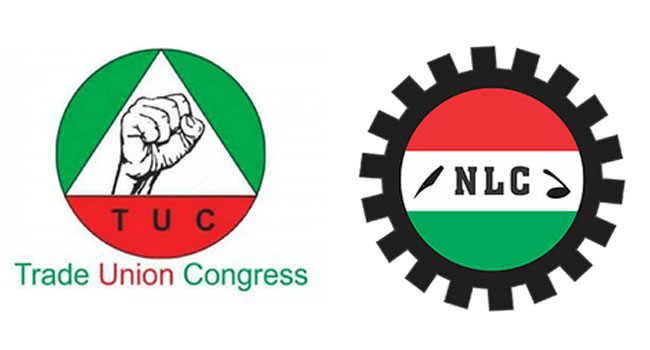
The contentious issue of electricity tariff hike in Nigeria has once again ignited tensions between the Federal Government (FG) and Labour unions, setting the stage for a potential showdown.
JOIN US FOR MORE ON:
or
or Follow us on WhatsApp Channel
The Federal Government has stood firm on its decision to implement an increase in electricity tariffs despite opposition from Labour unions. This move comes as part of efforts to address the longstanding challenges in the power sector, including inadequate infrastructure and unsustainable subsidies.
However, Labour unions, including the Nigeria Labour Congress (NLC) and the Trade Union Congress (TUC), have vehemently opposed the tariff hike, arguing that it would further burden already struggling Nigerians. They have accused the government of insensitivity to the plight of the masses, particularly in the face of economic hardships exacerbated by inflation and other socio-economic factors.
The NLC and TUC have threatened to embark on nationwide protests and industrial actions if the government proceeds with the tariff hike. They argue that any increase in electricity tariffs should be preceded by significant improvements in power supply and infrastructure, as well as a comprehensive review of the sector to ensure transparency and accountability.
Labour unions have also called for broader consultations and engagements with stakeholders before any decision regarding tariff adjustments is made. They emphasize the need for the government to prioritize the welfare of the citizens and explore alternative solutions to address the challenges in the power sector.
In response, the Federal Government has reiterated its commitment to implementing necessary reforms in the power sector to ensure sustainable electricity supply. Government officials argue that the tariff hike is essential to attract investments, modernize infrastructure, and improve service delivery in the long run.
Furthermore, the government has emphasized the need to gradually reduce subsidies in the power sector, which have been a significant drain on the national treasury. They contend that subsidy removal is necessary to create a more efficient and competitive market that can attract private investments and promote innovation.
At a press briefing in Abuja on Friday, the Minister of Power, Adebayo Adelabu, insisted that the Federal Government would continue with the new tariff regime for Band A consumers despite calls for its reversal.
He said this was because the government could no longer continue paying humongous sums as power subsidy, stressing that subsidy on electricity for 2024 would cost the government about N2.9tn.
The minister said, “We are in the subsidy pricing regime, whereby the government provides a large portion of the cost of producing, transmitting, and distributing power.
“I must tell you that as of today, before the introduction of the tariff increase, the government is subsidising nothing less than 67 per cent of the cost of producing, transmitting and distributing electricity in Nigeria.
“At the current exchange rate, this is going to translate into N2.9tn for 2024. This is more than 10 per cent of the national budget. The power sector is just a single sector out of the many sectors that the government has to attend to.”
Adelabu said other sectors and ministries were competing for government funding and that “it will be very insensitive on our part to force or compel the government to continue to subsidise at the rate of almost N3tn for the power sector alone. We just have to be realistic and considerate.”
The clash between Labour unions and the Federal Government over electricity tariffs reflects broader tensions surrounding economic policies and governance in Nigeria. It underscores the challenges of balancing the need for reforms with concerns about social welfare and equity.
As the standoff continues, all eyes are on the government and Labour unions to find a middle ground that addresses both the imperative for reform in the power sector and the concerns of ordinary Nigerians struggling to make ends meet in a challenging economic environment. Whether through dialogue or confrontation, the resolution of this dispute will undoubtedly shape the trajectory of Nigeria’s energy policies and socio-economic development in the coming months.
